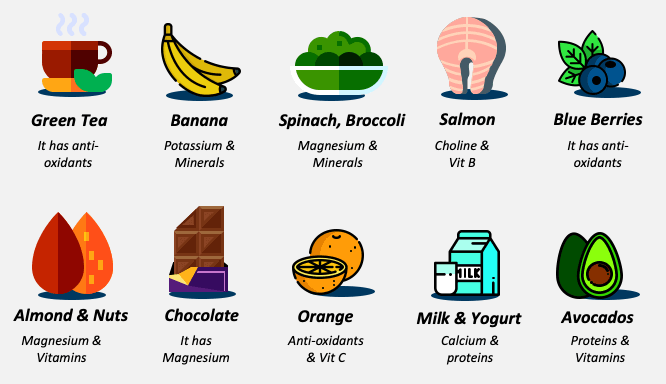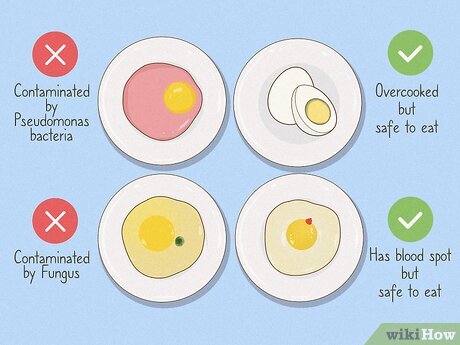Eat Your Way to Zen: 7 De-Stressing Foods to Combat Chronic Stress
By: Saika J
Chronic stress has become a modern-day epidemic, impacting both our mental and physical health. The relentless pressure to juggle work, family, and personal commitments can leave us feeling overwhelmed, anxious, and depleted. While seeking professional help and practicing stress-management techniques are crucial, what we put on our plates can also play a significant role in managing stress levels. Certain foods are nature’s stress-busters, packed with nutrients that can help regulate stress hormones, improve mood, and promote relaxation.
Nature’s Candy: Dark Chocolate for a Mood Boost
Dark chocolate isn’t just a delightful treat; it’s a potent weapon in your stress-fighting arsenal. Rich in antioxidants called flavonoids, dark chocolate helps reduce cortisol, the primary stress hormone. It also stimulates the production of endorphins, our body’s natural feel-good chemicals, and serotonin, a neurotransmitter with mood-regulating and antidepressant properties. However, not all chocolate is created equal. To reap the maximum benefits, choose dark chocolate varieties with at least 70% cocoa content. Indulge in a small square or two a few times a week for a delicious and mood-boosting treat.
Swimming in Omega-3s: Fatty Fish for a Calmer Mind
Fatty fish like salmon, mackerel, sardines, and herring are like little packages of stress-fighting goodness. These delicious options are brimming with omega-3 fatty acids, essential fats known to play a crucial role in brain health. Studies have shown that omega-3s can effectively reduce anxiety and stress. They help regulate neurotransmitters, the messengers in our brain, promoting a calmer and more balanced mood. Aim to incorporate fatty fish into your diet at least twice a week. Enjoy them baked, grilled, or even canned for a convenient and affordable option.
Leafy Greens: Nature’s Tranquility in Every Bite
Don’t underestimate the power of green leafy vegetables like spinach, kale, and Swiss chard when it comes to managing stress. These vibrant greens are packed with magnesium, a mineral that plays a vital role in regulating cortisol levels and promoting relaxation. A deficiency in magnesium can lead to increased anxiety and stress. Including a variety of leafy greens in your meals – salads, smoothies, stir-fries – can help keep your magnesium levels in check and support overall mental well-being.
Nuts and Seeds: A Tiny Powerhouse for Stress Relief
Nuts and seeds like almonds, walnuts, sunflower seeds, and flaxseeds are little powerhouses of stress-busting nutrients. They’re rich in magnesium, healthy fats, and fiber. These nutrients work together to stabilize blood sugar levels, preventing mood swings that can be exacerbated by stress. Nuts and seeds also contain tryptophan, an amino acid that the body uses to produce serotonin, the neurotransmitter associated with feelings of well-being and happiness. A small handful of nuts or seeds as a snack can provide a quick and convenient stress-relief boost. Keep a container on hand at work or toss them into your bag for a healthy on-the-go snack.
The Creamy Champion: Avocados for Stress Reduction
Avocados are not just a trendy superfood; they’re also a delicious ally in managing stress. This creamy fruit is loaded with nutrients that can help combat the negative effects of stress. They are high in healthy monounsaturated fats, which promote heart health and may also help regulate blood pressure. Avocados are also a good source of potassium, another essential mineral for maintaining healthy blood pressure, which can be negatively impacted by chronic stress. Don’t forget the B vitamins! Avocados are a good source of B vitamins, which support brain health and the production of stress-reducing neurotransmitters. Add avocado slices to salads, mash them onto toast, or blend them into a smoothie for a satisfying and stress-reducing treat.
Berrylicious Bliss: Nature’s Sweet Stress Fighters
Berries, such as blueberries, strawberries, and raspberries, are more than just a delicious burst of sweetness. They’re packed with antioxidants, vitamins, and fiber, all of which play a role in managing stress. Antioxidants help combat oxidative stress, which can contribute to feelings of anxiety and depression. Vitamin C, found abundantly in berries, is well-known for its role in lowering cortisol levels and helping the body cope with stress. Including a variety of berries in your diet can not only satisfy your sweet tooth but also provide a natural way to manage stress. Here are some delicious ways to incorporate berries into your diet:
- Breakfast Blast: Add a cup of fresh or frozen berries to your morning oatmeal, yogurt parfait, or smoothie for a refreshing and stress-busting start to your day.
- Snack Attack: Enjoy a handful of fresh berries as a healthy and satisfying mid-afternoon snack.
- Salad Sensation: Toss a handful of berries into your favorite salad for a burst of sweetness and a dose of stress-fighting nutrients.
- Baking Bliss: Bake a batch of blueberry muffins, strawberry shortcake, or a delicious berry crumble for a sweet treat that’s good for you.
- Frozen Fun: Freeze berries for a healthy and refreshing summer treat.
Natural Comfort in a Cup: Herbal Teas for Relaxation
For centuries, herbal teas have been used as a natural remedy for promoting relaxation and reducing stress. Certain herbs have specific properties that can be particularly beneficial in calming the mind and body.
- Chamomile: This classic calming tea is known for its gentle sedative properties. It can help ease anxiety, promote relaxation, and improve sleep quality.
- Lavender: Lavender tea has a calming aroma and taste that can help reduce stress and anxiety. It may also improve sleep quality.
- Peppermint: This refreshing tea can help soothe digestive issues that can be exacerbated by stress. In addition, peppermint’s menthol content may have a mild calming effect.
Sipping on a warm cup of herbal tea in the evening can be a soothing ritual that allows you to unwind after a long day. Experiment with different flavors and find what works best for you.
Building a Stress-Resilient Diet: Combining Powerhouse Foods
While individual foods can offer stress-fighting benefits, incorporating a variety of these powerhouse ingredients into your diet creates a synergistic effect. Here are some tips for building a stress-resilient diet:
- Plan your meals: Taking the time to plan your meals can help ensure you’re incorporating a variety of stress-busting foods throughout the week.
- Focus on whole foods: Prioritize whole, unprocessed foods like fruits, vegetables, whole grains, and lean proteins.
- Limit processed foods: Processed foods are often high in sugar, unhealthy fats, and refined carbohydrates, which can contribute to blood sugar fluctuations and worsen stress symptoms.
- Stay hydrated: Dehydration can exacerbate feelings of stress and anxiety. Aim to drink plenty of water throughout the day.
- Don’t skip meals: Skipping meals can lead to blood sugar crashes, which can contribute to irritability and mood swings.
- Mindful eating: Pay attention to your hunger and fullness cues. Eat slowly and savor your food. This practice can help reduce stress-induced overeating.
Food as a Tool for a Calmer You
Remember, food is a powerful tool that can significantly impact your mental and physical well-being. By incorporating these stress-busting foods into your diet, you’re taking a proactive step towards managing stress and promoting overall health. However, it’s important to note that a healthy diet is just one piece of the stress-management puzzle. Consider combining dietary changes with other stress-reduction techniques such as exercise, relaxation techniques (yoga, meditation), and spending time in nature.
Beyond the Plate: A Holistic Approach to Stress Management
While incorporating these stress-busting foods into your diet is a great first step, a holistic approach to stress management is crucial for long-term well-being. Here are some additional strategies to consider:
- Exercise: Regular physical activity is a powerful stress reliever. Aim for at least 30 minutes of moderate-intensity exercise most days of the week.
- Relaxation Techniques: Techniques like yoga, meditation, and deep breathing can help calm the mind and body, reducing stress and promoting relaxation.
- Sleep Hygiene: Prioritize good sleep hygiene practices, such as establishing a regular sleep schedule, creating a relaxing bedtime routine, and getting enough quality sleep each night.
- Social Connection: Strong social connections are essential for emotional well-being. Spend time with loved ones, engage in activities you enjoy with friends, or consider joining a support group.
- Time Management: Learn effective time management skills to reduce feelings of overwhelm and improve your ability to manage stress.
- Mindfulness: Mindfulness practices can help you become more aware of your thoughts and feelings, allowing you to respond to stress in a more constructive way.
Building a Stress-Resilient Lifestyle
By incorporating these strategies into your life, you can cultivate a stress-resilient lifestyle. Remember, managing stress is an ongoing process. Be patient with yourself, experiment with different techniques, and find what works best for you. Don’t hesitate to seek professional help from a therapist or counselor if you’re struggling to manage stress on your own. With a combination of healthy dietary choices, stress-management strategies, and a commitment to self-care, you can create a calmer and more balanced life.
Empowering You to Thrive: A Final Word
Taking charge of your well-being is empowering. By making informed choices about the food you eat and the lifestyle practices you adopt, you can significantly impact your stress levels and overall health. Remember, you are not alone in this journey. There are a wealth of resources available to support you. Embrace the power of food as medicine, explore stress-reduction techniques, and prioritize self-care. With dedication and a positive attitude, you can create a life filled with less stress and more moments of peace and joy.




